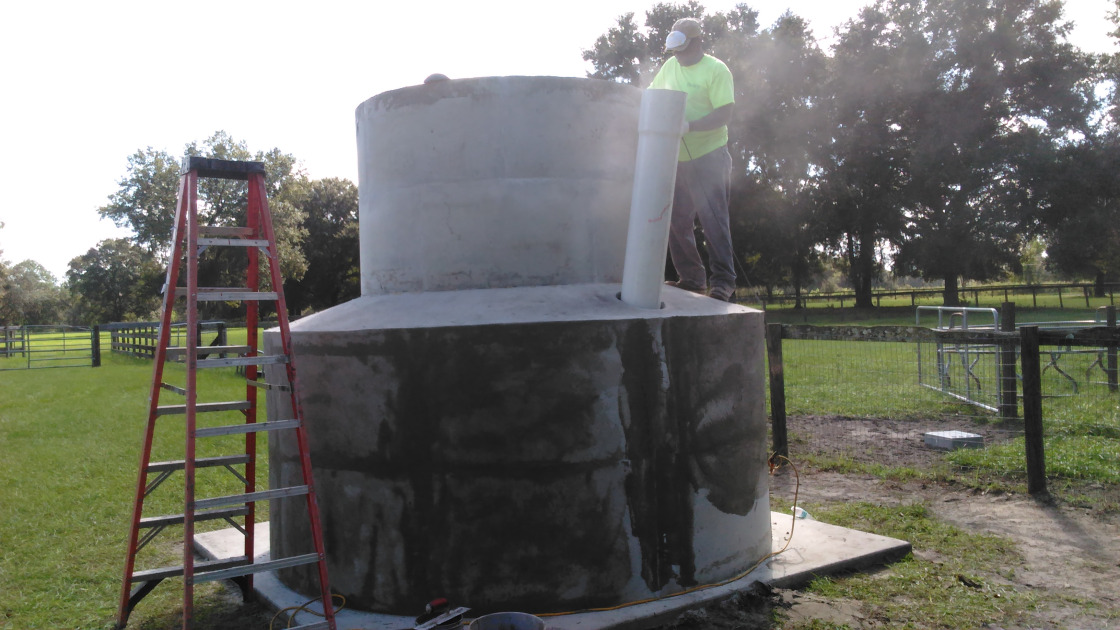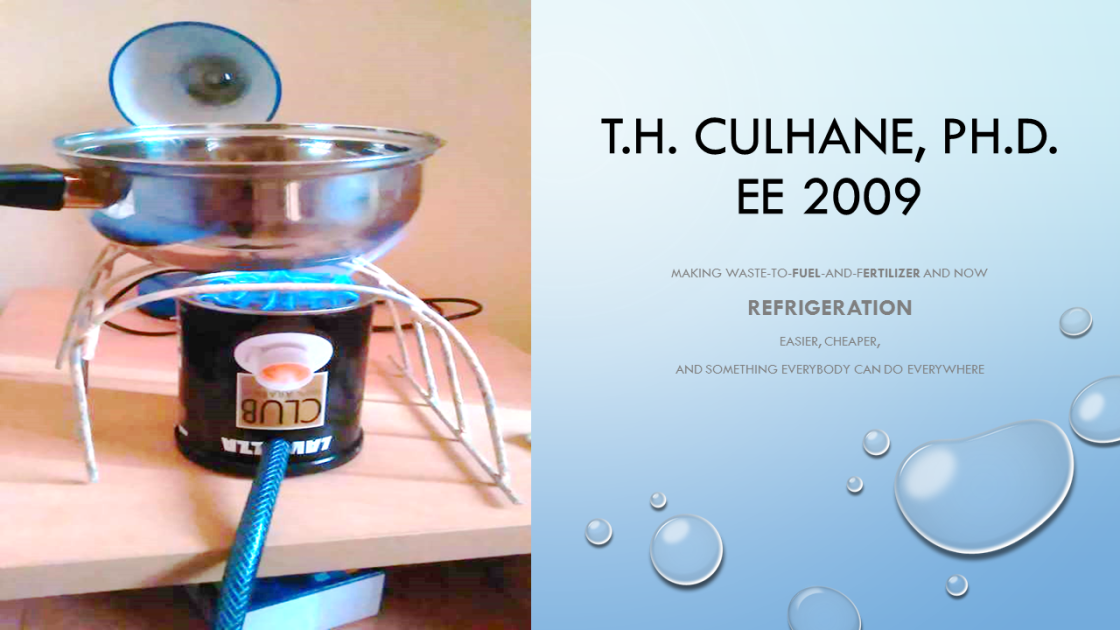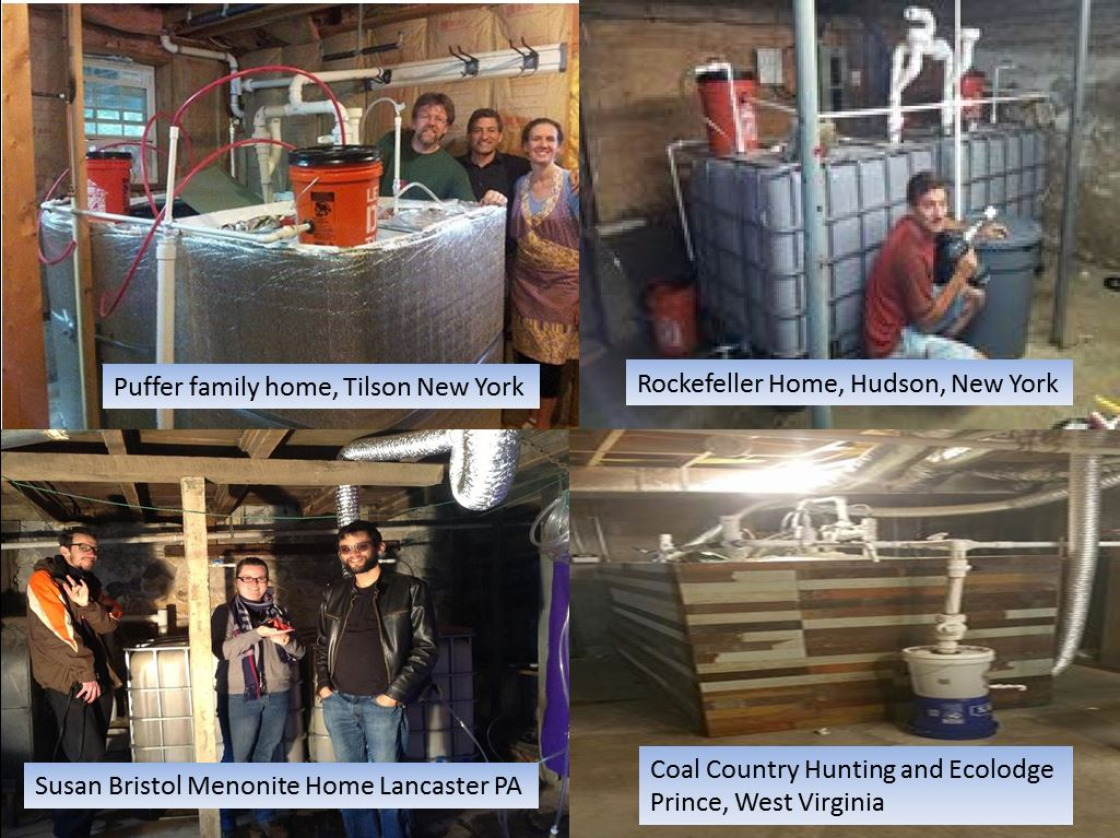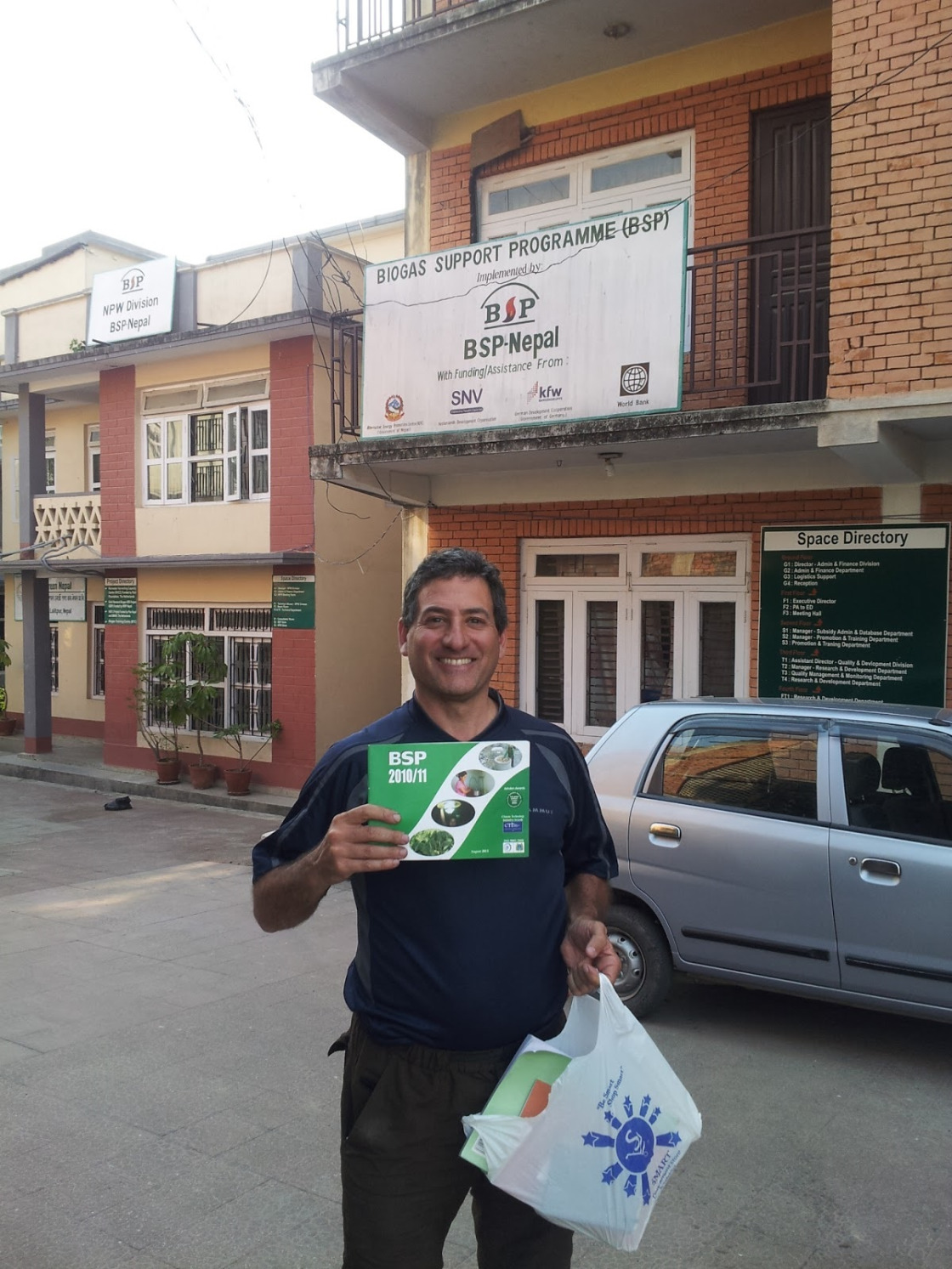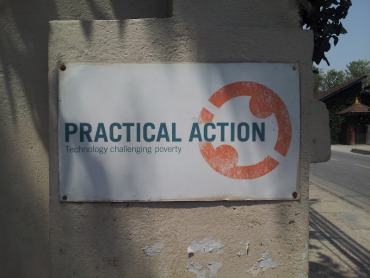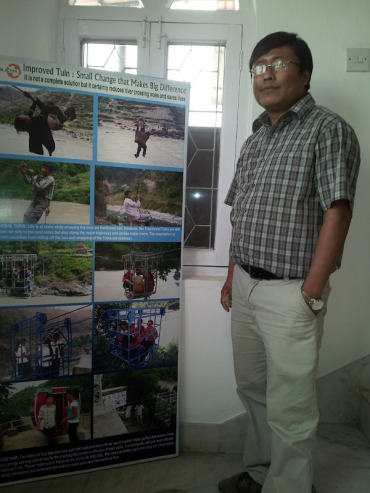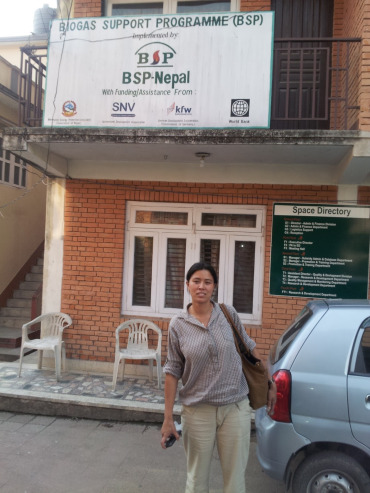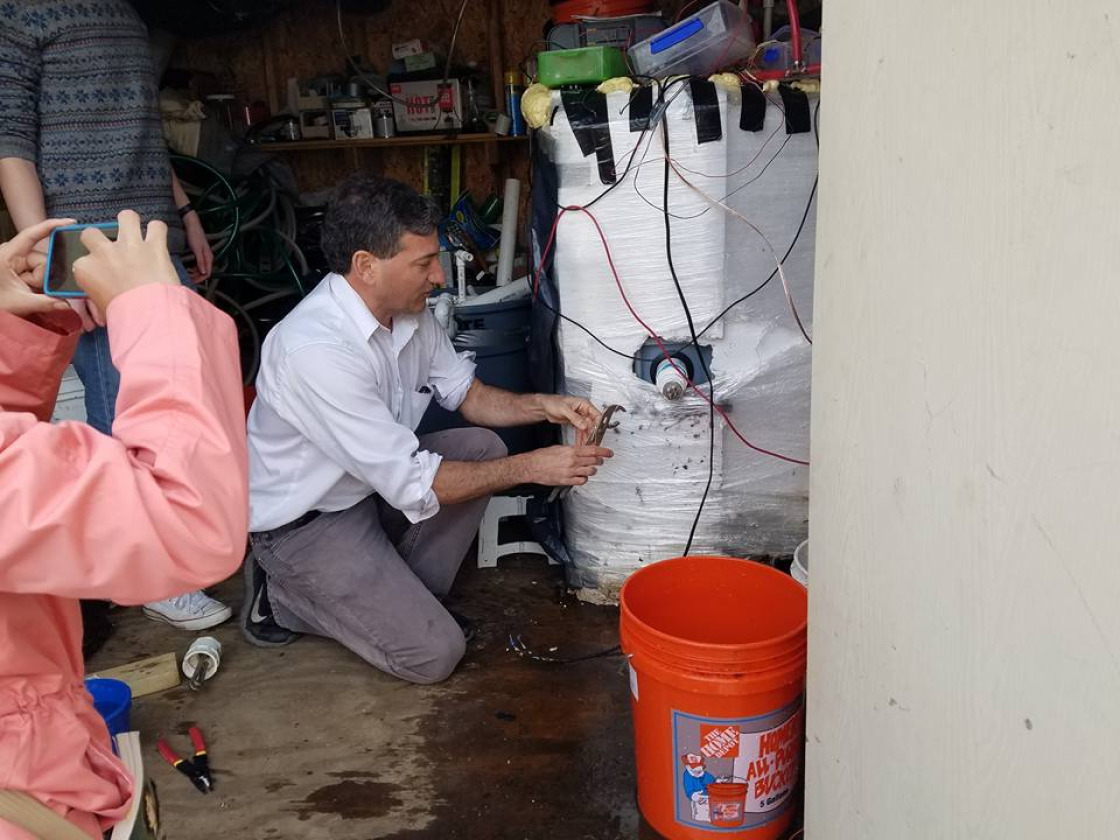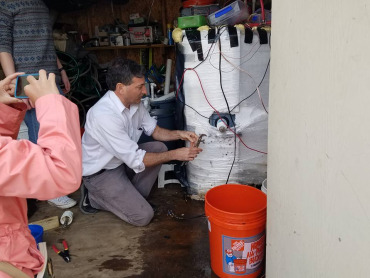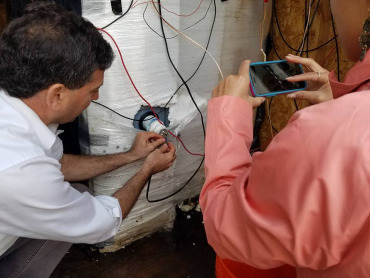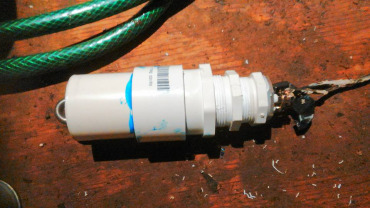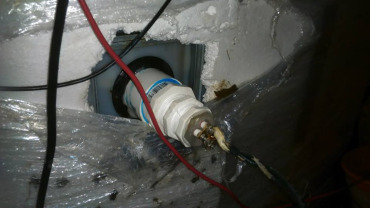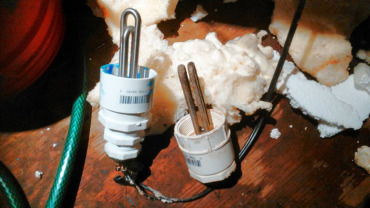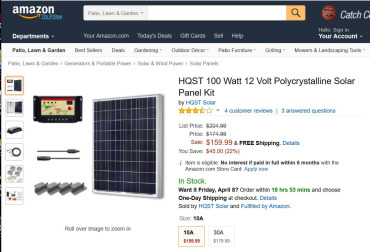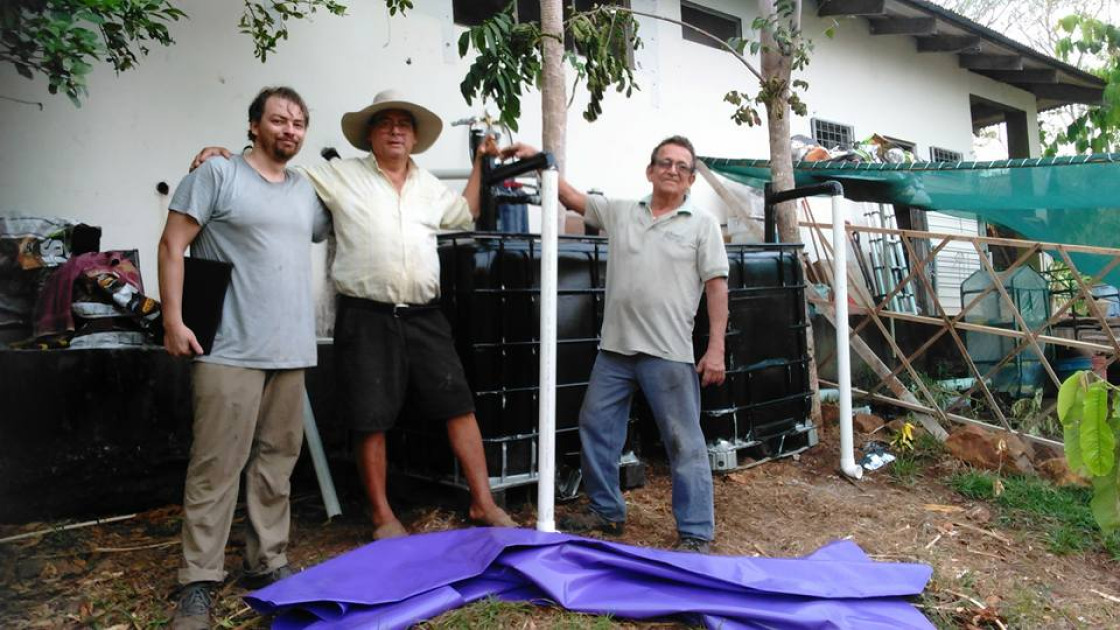Solar CITIES first Puxin Digester in Florida.
Solar CITIES is completing Florida's first community biodigester at the Bishop family farm Rosebud Sustainability Education project. This is the first of three and will be used as a proof of concept and training ground for the entire south, using biogas as the central technology that will include hydroponics, native plants, and Solar energy. USF Patel College students and faculty have been involved and it is hoped that the site will become a living laboratory for best practices in Sustainable Development that will influence the entire region.

